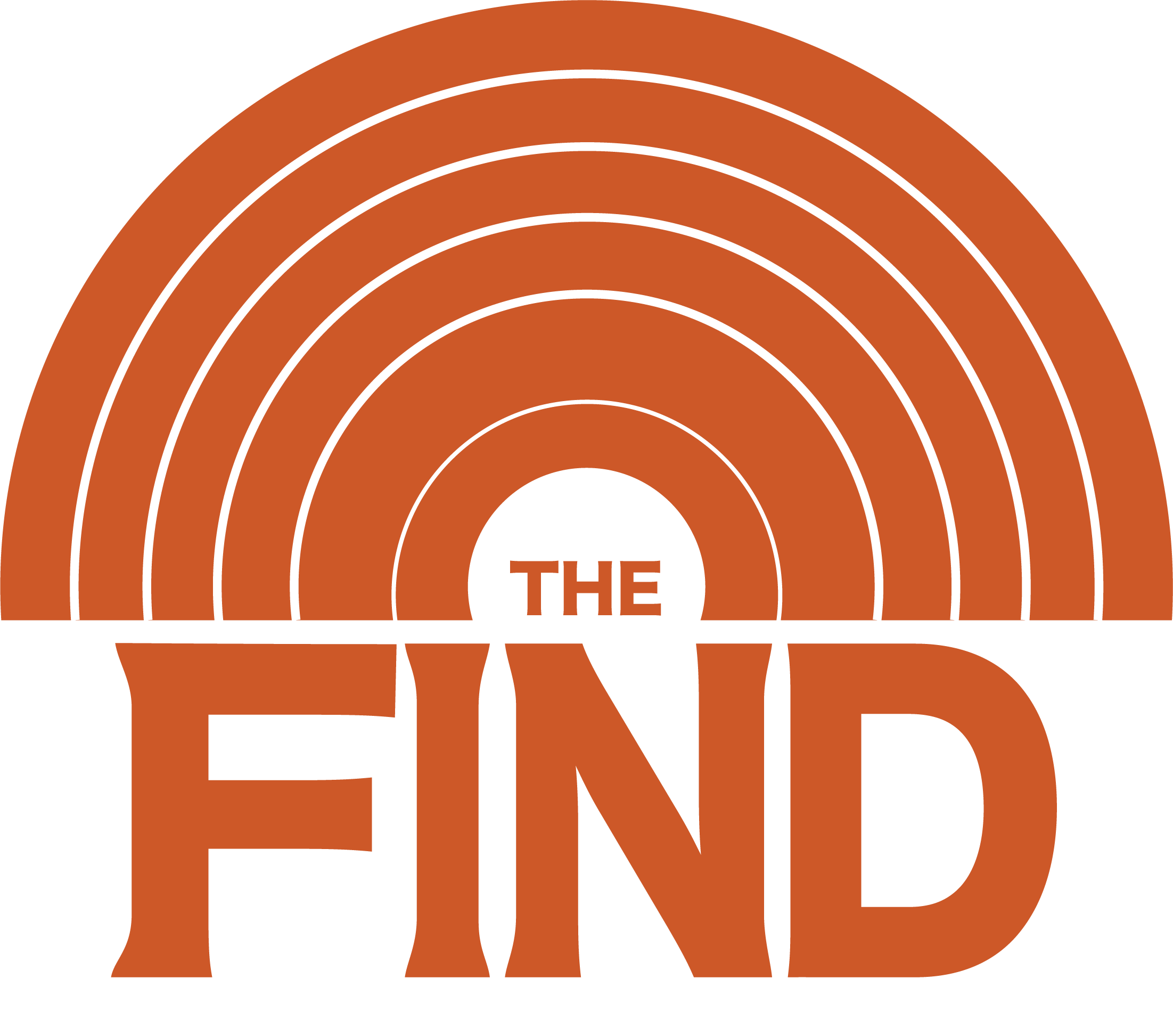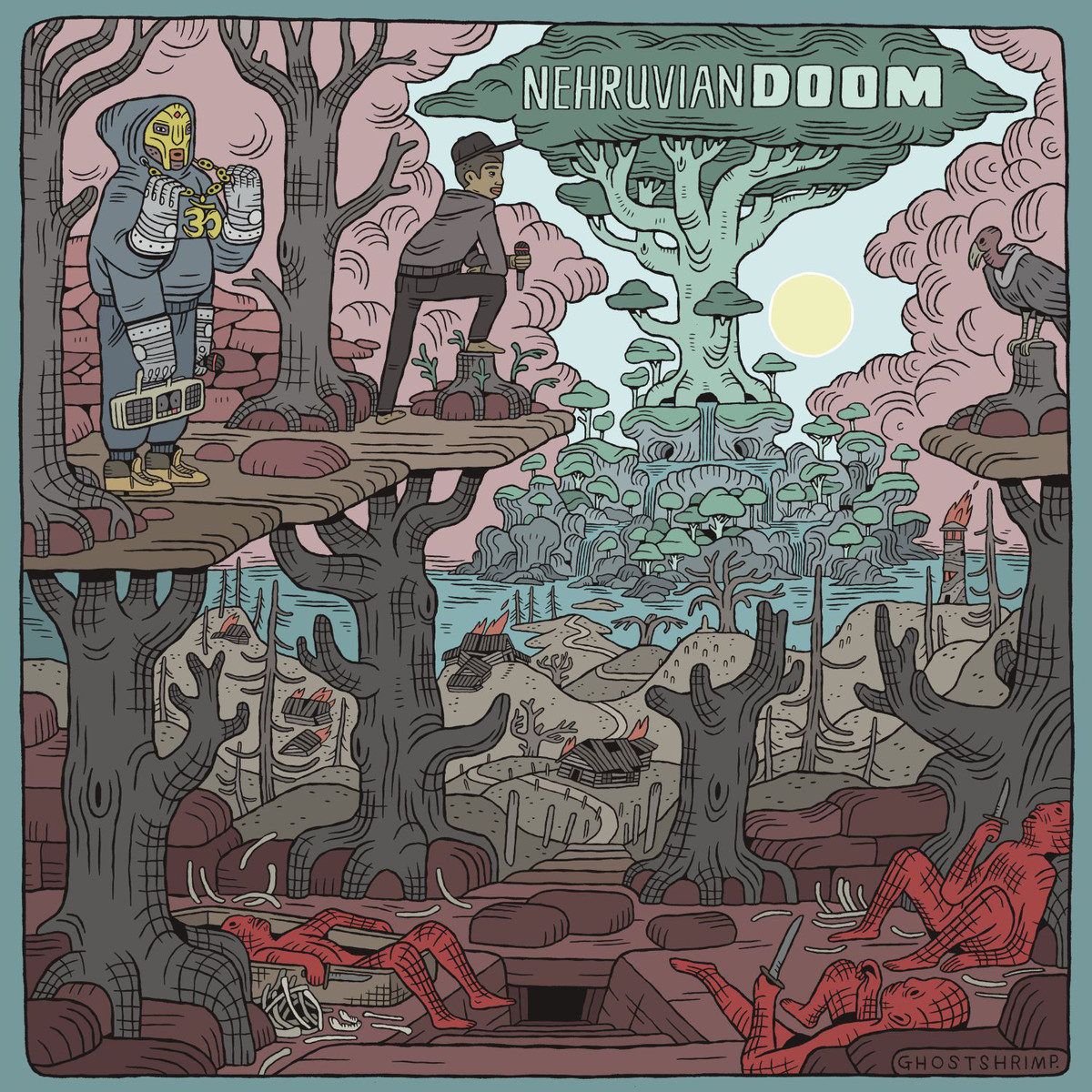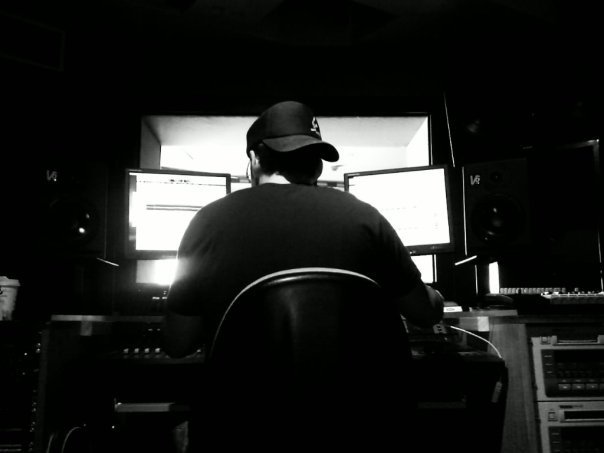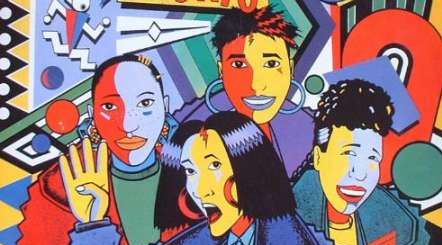Interview: NE$$ & Baby J on ’21st Century Blues’
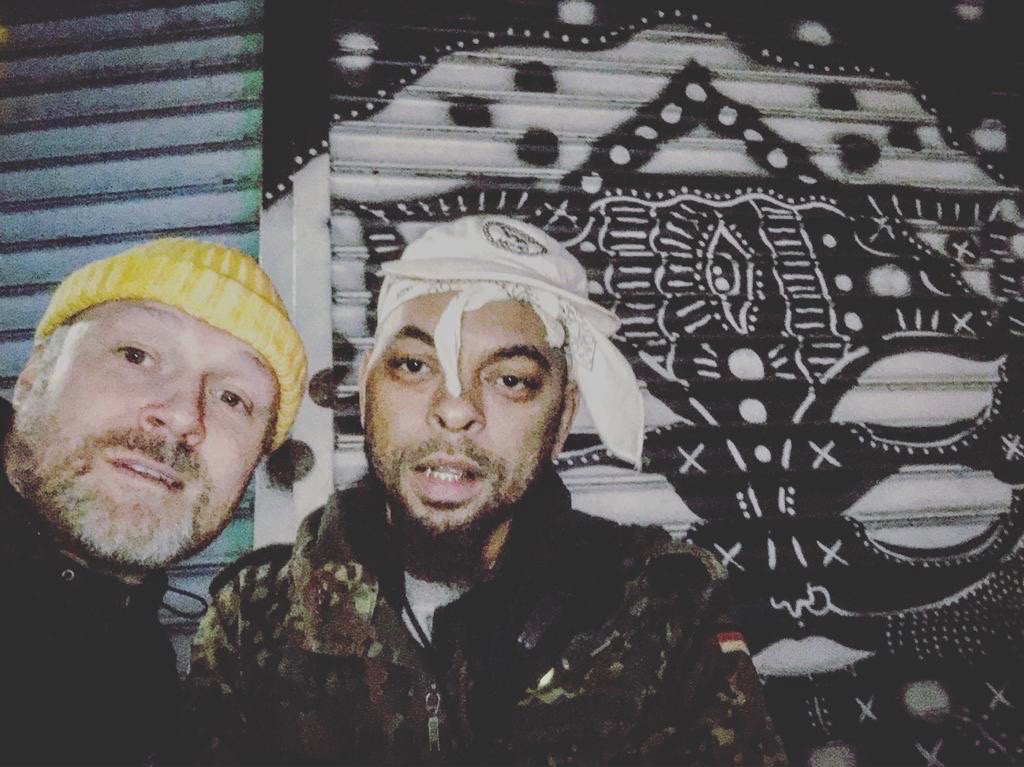
21st Century Blues by Brooklyn-based rapper NE$$ (of Weekend Money) and UK producer Baby J tells the story of struggles of young Black men trapped in the system, and the opportunities and hopes of the future that could be.
(Words by Matt Horowitz)
How did you two initially meet and decide to start recording and creating music together?
NE$$: We met in NYC years ago during a session for Baby J’s producer album, The Birth, when my partner, Karaam from A-Alikes, and I just moved to New York. Our brothers, Stic & M1 from Dead Prez, invited us to a session they were doing for J’s album and brought us along. I remember J had multiple rooms going in some studio in the city with emcees writing in each room. He looked at us and said, “I got a few beats left, if y’all wanna jump on the album.” I heard some of the other beats cats were rapping on compared to the ones we got and felt like, “damn, what’s up with a beat like those?” [laughs]. [Karaam] chose this one weird baby toy-sounding beat that ended up becoming “Walk wit’ A Bop.” We wrote it, recorded it, J took it to the label, and I remember a couple of weeks later, we got a call that the label wanted that joint to be the single. The rest is history.
Baby J: Yeah, I was working with Shabazz The Disciple, who had introduced me to Lord Jamar from Brand Nubian. He was working with Dead Prez and I started sending them beats. When I got a chance to work on my album, I asked M1 if he knew any other emcees that would be good to get on the project and he brought A-Alikes through.
What would each of you cite as some of your primary sources of inspiration and influence while writing and recording 21st Century Blues?
NE$$: Having time on our hands, a burning desire to make something in this sonic space, and to get some sh*t off my chest… I would say the whole COVID lockdown allowed time and focus to really dig in on this narrative that, otherwise, woulda been lost in the day-to-day distractions… Even [though,] I’m always true to my own inner voice, I do, sometimes, soak up energy from outside myself; whether that be the world, other music you hear going out or people around you are vibing to, etc. But with everything slowed down or shut down altogether, the inner-voice really took over on this one.
Another thing was the fallacy in our everyday “reality” was exposed even more so during The Pandemic. A lot of things people saw as “permanent fixtures” or “necessary” were just exposed for what they are: capitalist bullsh*t, some carrot for a horse sh*t. Like, a lot of our day-to-day isn’t here to serve us, it’s just some sh*t to keep capitalism going, make rich people richer, and us like hamsters in a wheel. When you’re facing a global Pandemic that you’re not sure where it’s going, death toll growing, news starting to look like some sci-fi Black Mirror, Walking Dead sh*t, that pre-corona day-to-day “normal” just looks absurd.
Then, the George Floyd murder happened and everything just crystalized. I was already doing a lot of self-reflecting with all the time on our hands and being two months into that album mode creation energy, but something about the people’s collective response to this man’s murder lives for everyone to see really shifted something in me. It reminded me and, woke me up even, to my duty as an artist in the struggle. I was already there, for the most part, before that happened, working on this specific 21st Century Blues project, but it just further lit a fire for me. It had me reflecting on my earlier work when Black liberation and speaking truth to power was my sole mission.
In the same breath, seeing “radical” revolutionary slogans and ideas become mainstream catchphrases really made me feel a sense of optimism and validation even for all the years we have been talking about this stuff in our art. At the same time, I was wary that this moment is just that “a moment” and not a lasting thing, but we push on and see how far people wanna take it to true humanity, freedom, justice and equality.
Baby J: It’s beautiful, man. It feels like stuff we and other artists around us have been talking on for years is now mainstream. Whilst, I don’t think this energy alone will fundamentally change things. I think, it has changed the narrative and that can only help.
For me, I think, the love affair I had with hip-hop over the years had been in a bad place with the exception of a few artists I just didn’t feel connected to what was happening in hip-hop. I guess the lockdown/space to create this album allowed us to make the music we wanted to hear, regardless of what was “in fashion” or “current.” Working with NE$$ allows me to put a viewpoint across without being an emcee.
“Dirtier, dustier, gritty beats. Compared to Weekend Money, it’s, sonically, totally different: record crackle, more analog sounding, slower BPMs… that classic NYC, East Coast boom bap vibe, but new and musical.” – NE$$
What were your typical writing, recording, and beatmaking processes like while creating 21st Century Blues?
Baby J: For me, it often starts with me humming a melody into my phone. Then, I’ll play that on my keyboard and work around that. Sometimes, it’s a production idea first, but a lot of [times] I go into making it sound like an old record and not like it’s been done in the box.
NE$$: I take notes all the time, so I usually have ideas, titles and concepts floating around in my head. I’ll usually start by just playing with some words or phrases I wanna start with either riding around the ‘hood handling biz’ on the bike or moving around town driving. Once I got something I wanna build on, it’s like a seed that I just water… so, then, I like to sit my ass down alone away from everything and I just put the beat on loop and lock in. For the most part, I would write ‘til at least a verse is done, but there are times when I wouldn’t finish a verse, so I would voice memo what I wrote.
Once I get at least a verse done, I’ll set up my little Japanese divider guerilla [style] recording booth thing with the comforter over it, set my mic up, and lay down what I got as soon as possible.
How would both of you say 21st Century Blues differs from your respective bodies of work recorded and released separately?
NE$$: Dirtier, dustier, gritty beats. Compared to Weekend Money, it’s, sonically, totally different: record crackle, more analog sounding, slower BPMs… that classic NYC, east coast boom bap vibe, but new and musical. Narrative-wise, it’s more dense, layered, more vulnerable and intimate, more mature even.
Baby J: Sonically, I think, it sounds like my first LP, The Birth, from 1998. The main difference is there are no samples on this one, which is a jump for me. Also, as far as NE$$’ content, it sounds like someone that’s been on the journey. I guess, 10-20 years ago we were still working it all out.
What’s the intended meaning behind the title?
NE$$: The Blues is a music tradition [that] goes back to slavery. When you look at all music that came out of America, it all came from the blues. I’ve had this idea of 21st Century Blues for a while now on some modern continuation of that tradition. I mention 21st Century Blues in the Weekend Money song “Guatemala.” Although, the blues isn’t all necessarily “sad” music, it does deal with the pain within the struggle of being Black in America and how we push [through]. With my raps/words, I tend to talk about pain, struggle, and hardship, so I wanted to frame it in this way, like “a struggle continues…” sort of thing, but in this modern world dealing with current things unique to this time.
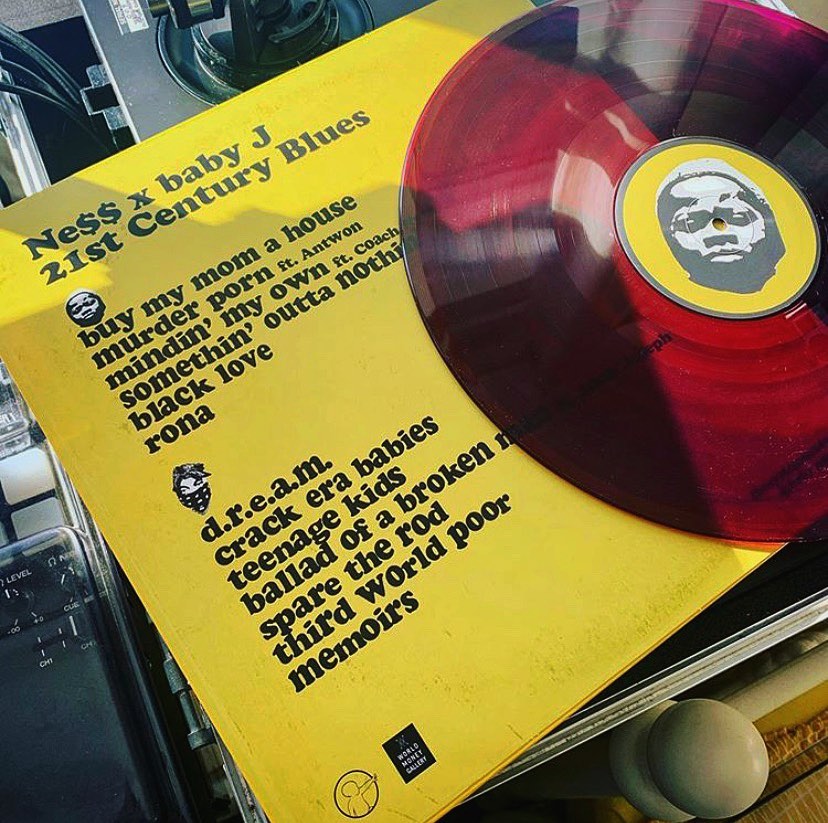
What can you tell about the limited vinyl release?
Baby J: it’s an Eco Range that the vinyl manufacturers do. Basically, they melt old vinyl and, then, press so you get a whole range of dope colors and shades. So, when you order a record, there’s no telling what color you’ll get. Alongside the vinyl, we did stickers, a poster, and a zine created by me and NE$$ and some of the creatives we know.
NE$$: It’s important to mention that with this project and moving forward, the music is only part of the expression. With previous projects, I’ve attempted to bring other facets of art into the equation; like some of the 3D art that [Baghdaddy] does with Weekend Money projects and some of the apparel stuff I do. A couple years ago, I co-founded and co-ran an art gallery in Brooklyn [called] World Money Gallery and that experience really opened me up to other art mediums and processes. As a kid, I was on a track to be a visual artist before rap became my main outlet and I’m just going back to that space more.
Who are some of the black-and-white figures featured across the 21st Century Blues album, single, promo, and artwork? What’s the cultural significance behind each person?
NE$$: We started by using some images that, aesthetically, worked from looking online and books. J can speak to some of those. Then, we just started looking [through] photo albums and my phone to get expressive Black & Brown faces that captured a mood. I remember looking at the batch of art print poster designs after we made a bunch of them and seeing all my peoples. I low-key got emotional looking at the whole thing. Like, people that I, actually, knew in real life.
The idea behind the art prints is to make art that is very immediate and real almost like a picket sign or something you see at a protest, but open and beautiful in an agitprop way. Besides having them digitally on Instagram and stuff, we’re making screen-printed on archival paper art prints of most of them that we’ll have available soon. For now, we give a free print with the vinyl release.
Baby J: I think, we just wanted to have that guerilla D.I.Y. feel, like a protest poster or banner. The images are people we know or robbed of the ‘net. Then, we just talked through the different quotes. I guess, we didn’t just want music. We wanted visuals, clothes (coming soon, but vintage printed up pieces,) and videos. It’s not all great, but it’s all us and we cool with that.
NE$$, we couldn’t do an interview and NOT ask you… What’s the current status of Weekend Money’s long-rumored sophomore album, The Emperor Wears New Clothes/8-ball Emoji/The Death of Pablo?
NE$$: It’s coming [laughs]… for real, for real [though]. At this point, this Weekend Money album is on some [Dr. Dre] Detox level, or Jay Electronica Act 2 album sh*t and [you] see, Jay Elect finally dropped that! So it’s this third Weekend Money album and Detox left [laughs]. But it’s coming. Me and [Baghdaddy are] sitting on gold. We’ve been building about it recently and we wanna get it out before year’s end. He’s flying down to Miami sometime this month and we’re locking in time to work on some new tracks that we might add to this album or something, but it’s coming. Sometimes, making music is easy… and sometimes, putting it out is hard.
